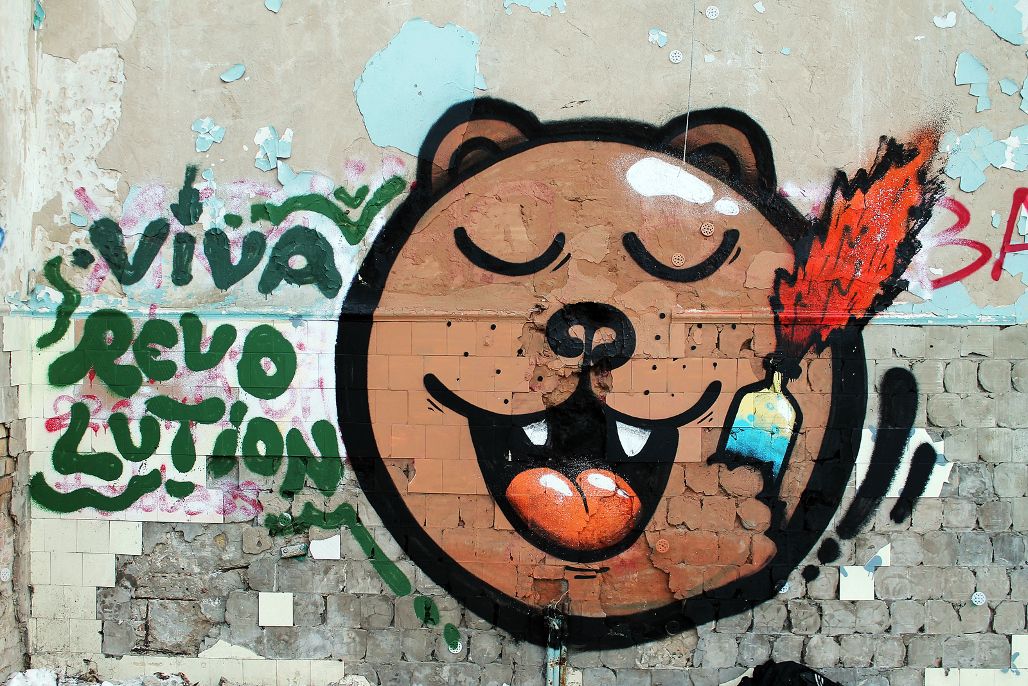The EuroMaidan’s Real Battlefront
The EuroMaidan’s main battlefront is not in Kyiv or any other city in Ukraine. It is in the global information space.
January 28, 2014 -
Igor Lyubashenko
-
Articles and Commentary

Photo: Wojciech Koźmic
In order to understand the EuroMaidan’s developments, one should not analyse the “balance of power” between the authorities and the protesters. It does not explain us much. Over the last two months, Ukrainians have faced the use of force by the authorities, yet this does not prevent them from continuing protests. Furthermore, any attempts by the authorities to tighten the screw lead to even more resistance. The final outcome of the protests depends primarily on who will be able to convince a decisive majority of Ukrainian citizens and key world decision-makers.
Communication is the key factor to what is happening in Ukraine. Decentralised communication through digital channels became the main means of mobilisation of the citizens. It also became a crucial factor of spreading the protests beyond Kyiv, and of repeating the scenario of the citizens’ occupation of public buildings in Ukraine’s regional centres.
The Euromaidan can be called one of the first “transparent revolutions”. We can follow the development of the events in almost real-time mode. Whatever happens, the footage of these events becomes available almost instantly. Hundreds of thousands of people watch online streams from Kyiv. In fact, neither side can feel impunity as everything is watched by the observant eyes of omnipresent smartphones and tablets.
But this is only one side of the coin. What we see in this constant stream of news is “pure information”, which is predominantly lacking in serious interpretation. Paradoxically, although we seem to know more, we do not necessarily understand the situation better. All players engaged in the conflict – the authorities, the opposition and the civic movement itself – understand it. For all of them it is a qualitatively new situation in which they are making their first, often uncertain, steps. We have already seen attempts to provide alternative interpretations to the shocking events such as the mistreatment of Cossacks captured by the riot police, dramatic appeals of Ukrainian intellectuals to world opinion leaders and Russian efforts to present the events in Ukraine as inspired and executed by “extremists” (a word that means nothing), but also popular movies presenting something that can be called “the poetic side of the Ukrainian revolution”. Importantly, all these communication schemes appeal to the emotions.
What we are going to witness in upcoming weeks is a growing intensity of the information war focused on events in Ukraine, both within the country and beyond its borders. The occupation of public administration buildings is only the first (and it may even appear to be the easiest) step. If the EuroMaidan movement will continue its strategy of forming alternative organs of state authorities, at the end of the day the key question is whether people will support them. The EuroMaidan is indeed a massive civic movement, but it does not include every Ukrainian citizen (in fact, a recent opinion poll has shown that 20 per cent of Ukrainians would like to have an authoritarian government). Protests against corrupted authorities are clear and understandable. But what will happen the day after the victory? The same question can be posed to the authorities. Both sides are utilising negative emotions, but truly deep support can be achieved only through constructive proposals.
It is the most sophisticated dimension of information war around the EuroMaidan. The abilities of all the engaged actors to formulate convincing communication strategies will be one of key factors of success in this struggle. It is also crucially important in maintaining the level of violence as low as possible.
Igor Lyubashenko is an academic teacher, new media enthusiast and international relations analyst. He has a PhD in Political Science from the Maria Curie-Skłodowska University in Lublin.

































